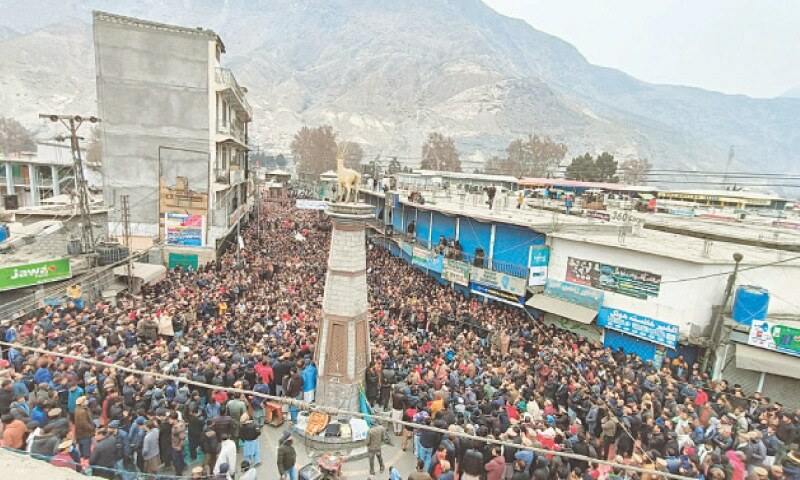The residents of Gilgit-Baltistan have faced significant challenges in recent months, as prolonged protests have emerged in response to various economic and administrative issues. Key grievances include rising inflation, food shortages, and the imposition of taxes, which have galvanized people from diverse communities to demand better conditions and more equitable treatment.
Officially referred to as the Northern Areas, Gilgit-Baltistan has historically experienced limited attention from central Pakistani authorities, often resulting in perceptions of neglect. The region’s governance structure, under the direct control of the federal government, has contributed to a sense of marginalization among its inhabitants. Despite the presence of Pakistani officials and the national flag, many residents feel disconnected from constitutional rights and proper representation.
Recent protests have highlighted several critical issues. Demonstrations have occurred in freezing temperatures, focusing on land rights, taxation, power shortages, and the reduction of subsidized wheat provided by the central government. A particular point of contention is the enforcement of a court order from the Gilgit-Baltistan Chief Court, which restricts the collection of certain taxes on imported goods from China via the Khunjerab Pass. Media reports indicate that protesters have blocked key trade routes, including the exit point to China, significantly disrupting trade activities.
Local traders have voiced their concerns outside the Sost Dry Port, suspending operations to draw attention to their plight. According to Dawn News, there are threats to block the Karakoram Highway (CPEC) if demands are not met, reflecting widespread frustration with the current situation.
Furthermore, on August 2, the Pamir Times reported a protest in Gilgit City concerning the long-delayed compensation for land acquired for the construction of Gilgit Airport in 1948. Residents have waited decades for compensation, with many families displaced due to the land acquisition.
The region’s ambiguous constitutional status and lack of infrastructure further complicate matters. The recently passed GB Revenue Authority Bill has faced criticism for imposing taxes without providing proportional representation. Additionally, locals have expressed concerns about land acquisitions for projects like the China-Pakistan Economic Corridor (CPEC), which they feel are being implemented without adequate consultation or compensation.
Electricity shortages are another significant issue. In Skardu, the largest city in the region, residents endure extensive power outages, exacerbated by the region’s reliance on its own power generation facilities. The Satpara Dam, intended to supply power to 40,000 homes, has underperformed, leaving many without reliable electricity.
Activists, such as Shabir Choudhry, have highlighted the region’s struggles. In a recent YouTube video, Choudhry, an activist originally from Pakistan-administered Kashmir now residing in London, drew attention to the historical and ongoing discontent in the region, referencing past uprisings and current grievances.
Political dynamics also play a crucial role. Pakistan’s mainstream political parties often prioritize national agendas over local interests, leading to administrative challenges and inefficiencies. The creation of numerous small districts for a relatively small population has hindered the development of robust local governance. Proposals for additional revenue districts could exacerbate these issues, potentially leading to “taxation without representation.”
The situation in Gilgit-Baltistan remains precarious, with ongoing protests and mounting frustrations. Addressing the region’s challenges requires a nuanced and equitable approach, ensuring that the voices and needs of Gilgit-Baltistan’s residents are heard and addressed.

